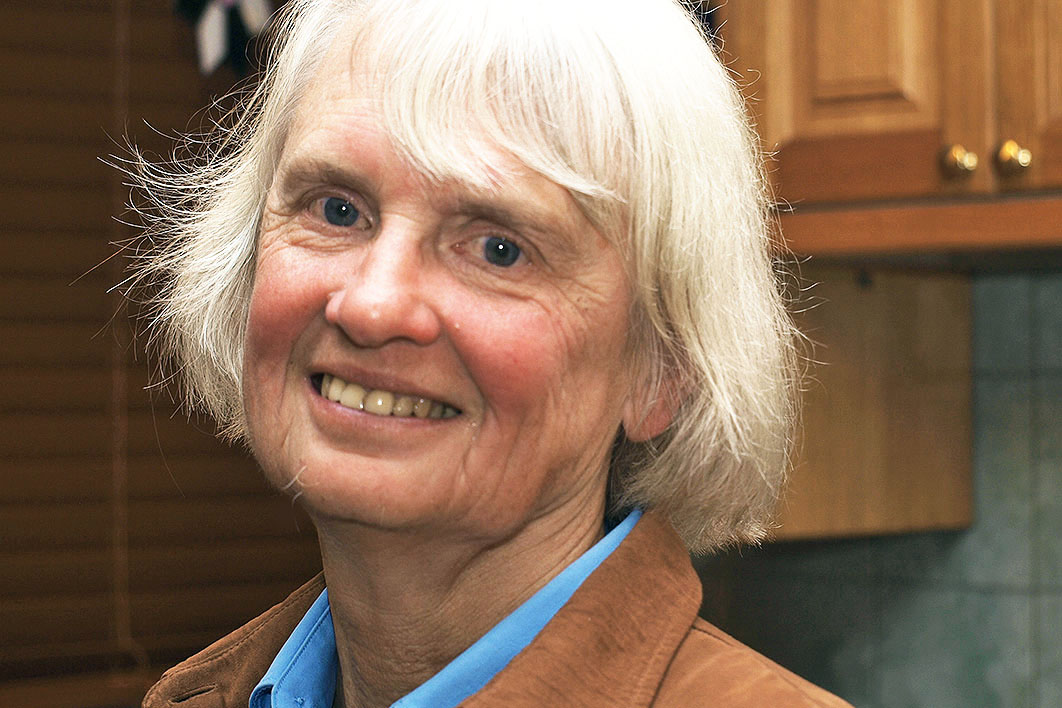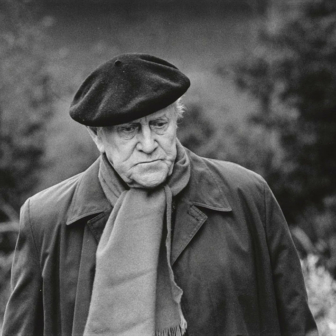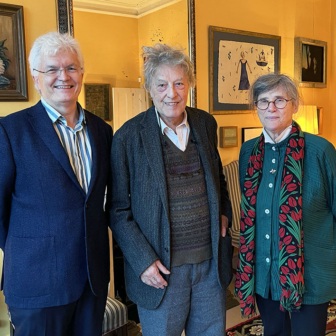Between 2014 and 2021 Janna Thompson wrote twenty-three reviews for Inside Story. She was among our most valued contributors, obliging, perceptive, forceful and — that rarity — always on time, and we were deeply saddened to learn of her death during our publishing sabbatical in June. Here, in an expanded version of his talk at this week’s memorial gathering, Tim Oakley recalls his former colleague.
Let me say a little about Janna’s role as a member for forty-seven years of the La Trobe University philosophy department. She joined us as a lecturer in 1975, and retired as a professor at the end of 2011. But she remained an adjunct for the next ten years, continuing her research activity and regularly attending departmental seminars. Over that period, my own attendance at the seminars was made more pleasurable by the habit of meeting Janna for coffee beforehand.
Janna contributed enormously, in both quantity and quality, to the department’s research output. In particular, she is internationally famous for breaking largely new research ground with her work on intergenerational justice. Others will tell you more about this, but I can say that she started a whole new research field almost single-handedly. Nowadays there are hundreds of journal articles and books on the topic, all citing her in their bibliographies.
She had me look over the draft of her ARC Discovery Grant application near the start of all this. I had seen many such applications and written some myself, but hers blew me away. The project was meticulously thought-out and justified, and had significance in spades. I thought, if this doesn’t deserve a grant, nothing does. (The ARC assessors, I’m glad to say, took the same view.)
That project, like almost everything that Janna worked on, had a wonderful virtue: it had direct relevance for society. Crudely put, it is about what we owe the past, and what we owe the future. Janna’s take on this was very much against the common view that we owe nothing to either. Almost all of her work — five books, two co-edited collections, and a very large number of journal articles and book chapters — had a bearing on vital social issues. Philosophers: when you need to defend the value of philosophy to the public, point to Janna’s work. Further, she was that most valuable philosophical researcher, a writer whose arguments are delivered with a clarity that makes them accessible to those outside academic philosophy.
Here is an example of the high regard she enjoyed. I had an email recently from the editors of a special issue of The Monist. This is a highly rated international philosophy journal published out of the United States.
We are great admirers of Janna Thompson’s work. A few months ago, Janna had sent us an article, in first draft, for a special issue of The Monist on Transgenerationality, Community and Justice… Unfortunately, she passed away before the article was accepted.
The Monist would like to publish the manuscript posthumously, including a note explaining that it is one of Janna’s last works. The Monist would also like a colleague of Janna’s to add a short text to the article, even if only two pages, explaining Janna’s contribution to philosophy (a kind of tribute).
Just to be clear, Australian philosophers do not standardly get this sort of treatment in international journals.
Quite apart from her research output, Janna made a great contribution to philosophy at La Trobe. In seminars — seminars on any topic — her contributions were acute, penetrating and constructive. She was a good, tough-minded thinker, committed to weighing evidence and careful reasoning, but at the same time essentially constructive in her contributions. (I might add, she showed the same virtues on departmental committees.) Despite concentrating her research on human rights, and global and intergenerational justice issues, she was in fact a very good generalist, with a capacity to think through any type of philosophical problem. I benefited personally. She generously read drafts of papers of mine on epistemology, and sometimes made the most useful comments on them that I received from anyone.
Janna also made a great contribution to the department’s teaching program. She was a very good teacher, regularly scoring high praise in student surveys. She took teaching seriously, as evidenced by her undertaking the Diploma of Tertiary Teaching when it was offered at Monash. She is, I believe, one of the very few philosophers to have done so, if not the only one. She taught a wide range of subjects, and developed new subjects with great success. In addition she was also a genuine team player, willing to step in and take over a subject that had to be taught when the usual lecturer was on leave or ill. Imagine the workload!
We were, in philosophy at La Trobe, for a long time superbly lucky. We had not just a very accomplished group of academics, but we had a department where for the most part our colleagues were our friends, we cooperated, and we had a feeling of common enterprise. It’s not like that everywhere. Janna was very much part of that, and a willing contributor to that culture.
I have been speaking about Janna’s role in the La Trobe philosophy department, but she was a striking figure in other spheres as well. She was a fighter for social justice in all sorts of capacities outside the university, where her activities were undertaken in line with rigorously worked-out positions on what ought to be done. She once stood (unsuccessfully) for the Victorian parliament. She was a public intellectual of the best sort, writing many pieces for the Conversation and Inside Story. (How she managed to find time to get all this done is anybody’s guess.)
Another aspect of her life was that she was an adventurer and athlete, taking many overseas cycling trips of the most strenuous kind, kayaking over wild water rapids, and other such activities. She regularly cycled from home to the university, undeterred by two separate accidents when she was injured after being hit by cars.
I am extremely grateful for having had the privilege of being one of Janna’s friends. She probably had closer and more intimate friends than me, but we spent good times together, and I, with my wife Eve, shared with Janna meals, visits to galleries, concerts, and weekends away together at our holiday house. I, like other friends, spent time with her in her last months and days. Janna faced death as those who knew her would expect — without the least trace of fear or self-pity.
Janna was a first-rate philosopher, a first-rate colleague, a committed fighter for justice, an adventurer, an extraordinarily fit long-distance cyclist and trekker, and other things as well. But she was also straightforwardly a very good friend, to me, and to many of us. This occasion is about celebrating Janna, of course, and it’s not about us, her friends, family and admirers. Nonetheless, let me just say, losing her hurts, doesn’t it? My sympathy goes to those who feel that loss. •
Janna’s articles for Inside Story
Janna Thompson’s crime novel, Lockdown, has just been published by Clan Destine Press




